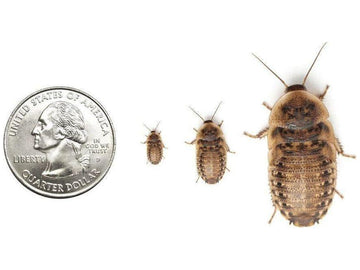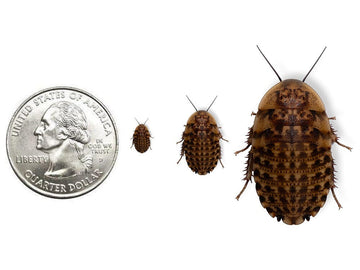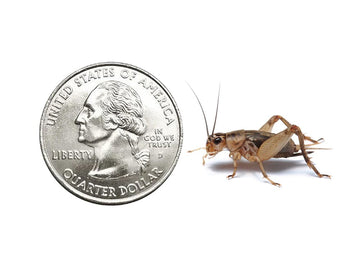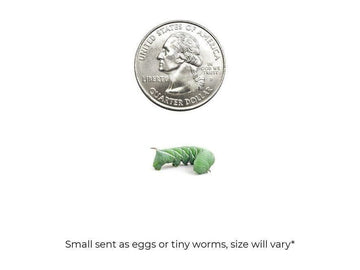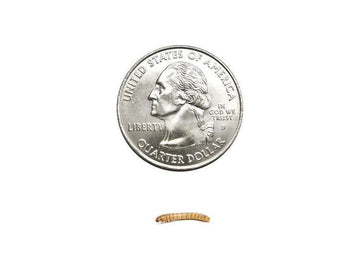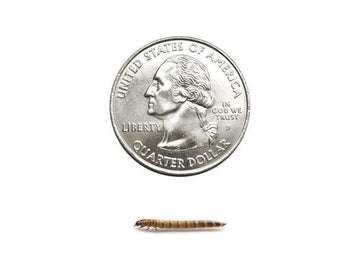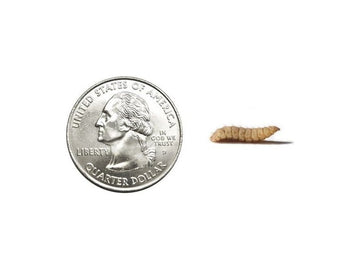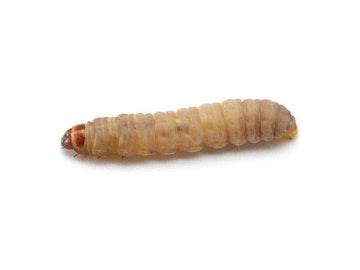The Clean Up Crew, or CUC, is one of the big things that distinguishes a bioactive vivarium from just a glass box with dirt and plants. Composed of beneficial insects, fungi, bacteria, and other microfauna, the CUC consumes feces, mold, and other types of waste while also aerating the substrate and keeping harmful pathogens at bay.
One of the best ways to establish a successful bioactive vivarium is to maintain a diverse CUC. Different types of CUC occupy slightly different niches, helping create a harmonious and balanced micro-ecosystem within your pet’s enclosure. One of the ways you can diversify your CUC is by including Tenebrio molitor larvae and beetles!
Do Mealworms Make a Good CUC?
Although mealworms are best known as feeder insects, and after that as a pest which infests granaries, mealworms and their beetles are also natural decomposers. Outside of a human-dominated environment, they eat a variety of organic waste, including leaves, dead insects, and feces. This makes them suitable for use as part of your bioactive vivarium’s CUC.
Because they’re popular feeder insects, mealworms are inexpensive and easily purchased at just about any pet store in any state. They are also wonderfully hardy, which means that they can adapt to a variety of different types of enclosures, and your investment is unlikely to go to waste.
However, mealworms and particularly mealworm beetles are prone to becoming snacks if your enclosure houses an insect-eater. This can make it difficult to maintain a viable population of T. molitor among your CUC if they don’t have enough places to hide.
It is worth noting that, while mealworms can’t infest your home, the beetles are enthusiastic explorers and may escape from the enclosure.
How Can Mealworms Benefit Your Bioactive?
Mealworms are very versatile, and can be used for everything from arid to tropical vivariums. However, it is important to note that they tend to reproduce slower in drier environments than those with more moisture.
Mealworms and their beetles are scavengers that assist the natural process of decomposition. They will eat a variety of decaying plant and animal matter, including wood. Because of their dietary versatility, mealworms are helpful in an ecosystem because they will eat organic matter that may be ignored by other organisms. Decomposition is very important to the process of maintaining healthy soil, and the burrowing behavior of mealworms helps prevent stagnation.
How to Care for Mealworms as CUC
Although mealworms are fairly hardy, they still have some special needs to pay attention to. They always need to have a source of water, which is why they generally thrive best in temperate to tropical setups. If you are using them in an arid setup, make sure they have hiding places and that there’s a nice moist underlayer of substrate. Mealworms and their beetles generally like leaf litter, darkness, and being in contact with other objects, which is why they can often be found under rocks, logs, water dishes, and other pieces of decor.
Provide your mealworms with moisture, plenty of leaf litter, and something to hide under, and they’ll do the rest!
Do You Need to Feed CUC Mealworms?
Like other CUC bugs, mealworms and mealworm beetles are generally happy to eat the decaying wood, leaf litter, dead plants, and leftover food present in a bioactive terrarium. That being said, that can lead to nutritional deficiencies, particularly if your pet likes to munch on their CUC. To keep your CUC optimally healthy, add CUC-specific food pellets or gel cubes to the enclosure every once in a while. Pieces of fruit or vegetable are also appreciated, and make for a good source of extra water.
Remove poo and urate as soon as you notice it. Although people with bioactive setups often boast about the benefit of not having to clean up animal feces, this claim is misleading and potentially harmful to your pet’s health. Although CUC insects like mealworms can and will eat feces, it’s best practice to remove fecal matter as soon as it is noticed, as this helps prevent your pet from getting re-infected with parasites in the event that they eat a member of their CUC.


